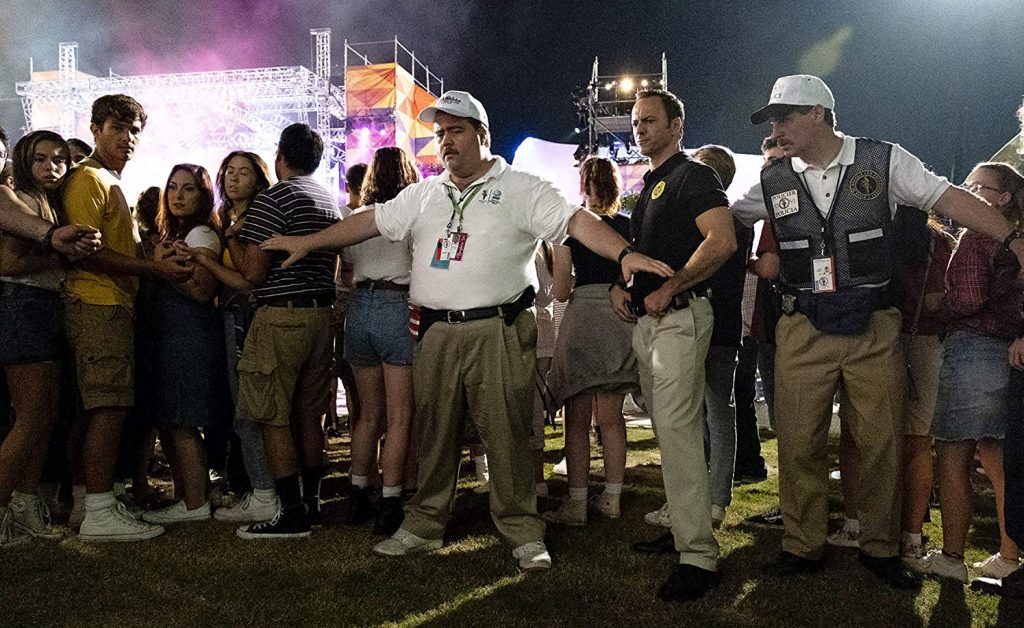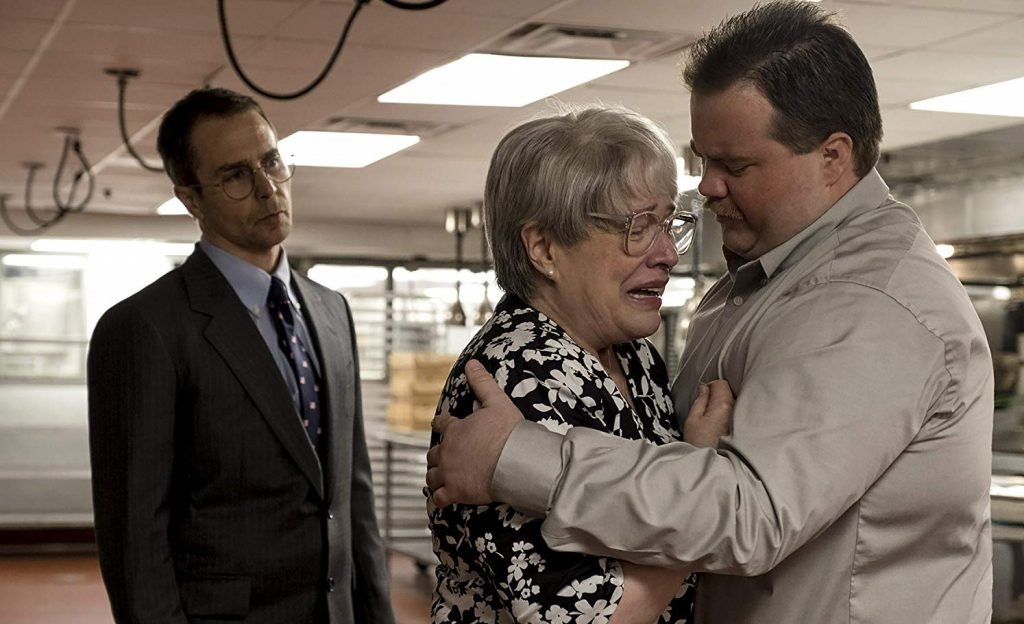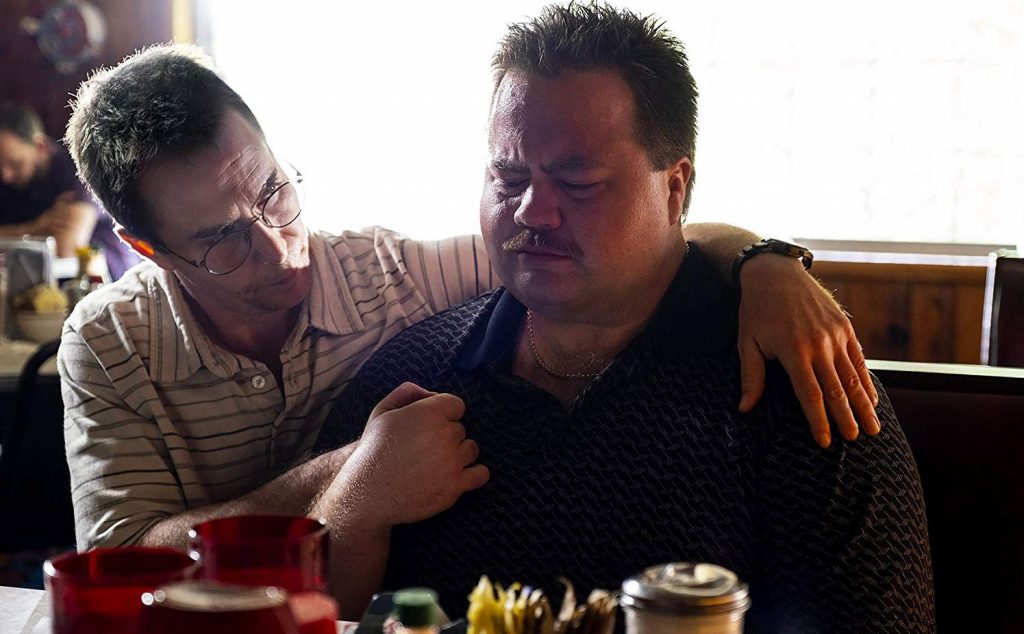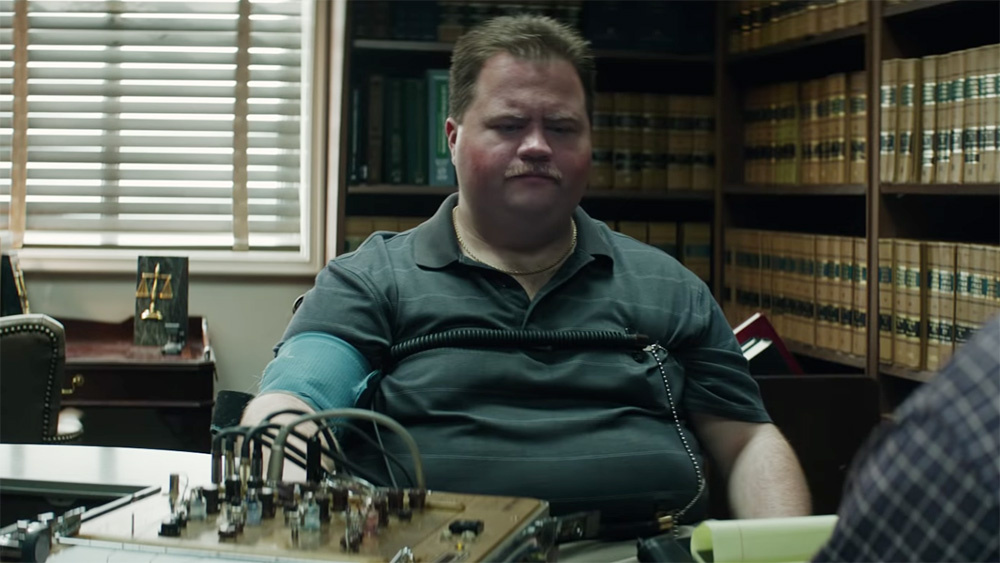
Director Clint Eastwood’s output has been a little spotty lately, with recent efforts like The Mule making an unremarkable impression on this reviewer and The 15:17 to Paris ranking as one the weakest films in his entire catalog. The good news is that his latest, Richard Jewell, is a definite improvement over those two pictures, including some excellent performances from the cast. So, it’s unfortunate that with all the good on display here, there are some issues still present, with one aspect of the feature coming across as particularly misguided and malicious.

Set primarily during the 1996 Olympics in Atlanta, the feature depicts the life of Richard Jewell (Paul Walter Hauser), a security guard yearning to be a cop. While working at a concert venue in Centennial Park, the figure sees a bag and alerts his disbelieving co-workers. Those familiar with the story will know that the bomb goes off and tragedy strikes, but not before Jewell is able to clear a significant portion of the area. Initially hailed as a hero, the oddball suddenly finds himself under suspicion from FBI agent Tom Shaw (Jon Hamm), who believes he fits the profile of a bomber. Reporter Kathy Scruggs (Olivia Wilde) begins writing accusatory pieces as well. As the national media hones in on Jewell and his mother Barbara (Kathy Bates), old acquaintance and lawyer Watson Bryant (Sam Rockwell) step in to defend him.

Hauser, Bates and Rockwell are excellent here as the friendly lead and his mother, completely unprepared to be put under the spotlight. As the tide turns and negative attention comes their way, Jewell attempts to put on a friendly and accommodating face with authorities that one can see slowly eroding as things get worse and worse. And Rockwell is entertaining as the protagonist’s lawyer, always frustrated by his client’s naïve reaction to the vultures circling around him.
These are all well-performed characters that help give audiences a sense of what it is like to be surrounded and watched by authorities and the media. And admittedly, beyond finally expressing his anger at being targeted, the character doesn’t change or come to any major revelations. Of course, this is a real story and there isn’t much the filmmakers can do about it. At least these talented performers make watching them interesting.

However, the film’s real problems lie in their antagonists. The FBI agents investigating Jewell are rather one-note, doing nothing more than being consistently hostile to Jewell. The worst offender is Kathy Scruggs. As portrayed, this stand-in for all journalists following the case simply comes across as an awful person. In fact, it’s rather shocking to portray a real person in this manner. Over the course of the film, she trades sexual favors for story leads, prints malicious reports and behaves in a manner so horrendous that it’s rather shocking to witness.
Remarkably, this is a real person being depicted and one wonders why the screenwriter would portray the reporter in this manner and not make them into a fictional character. It’s certainly an ill-advised and slanderous depiction and one that is said to be a complete fabrication by the Atlanta Journal-Constitution. Their claims are easy to believe – no human being behaves in the manner this villain does in the film.

In the end, there are plenty of commendable elements to Richard Jewell, including the three main leads and the relatable hardships one might endure over the course of a lengthy government inquiry. Unfortunately, there’s also an exaggerated and ugly side to this film that seems to suggest all investigative reporters are horrible people who will literally do anything for a story, and that FBI agents will happily give away classified information at the drop of a hat. These preposterous elements ultimately weaken an otherwise impressive drama.


